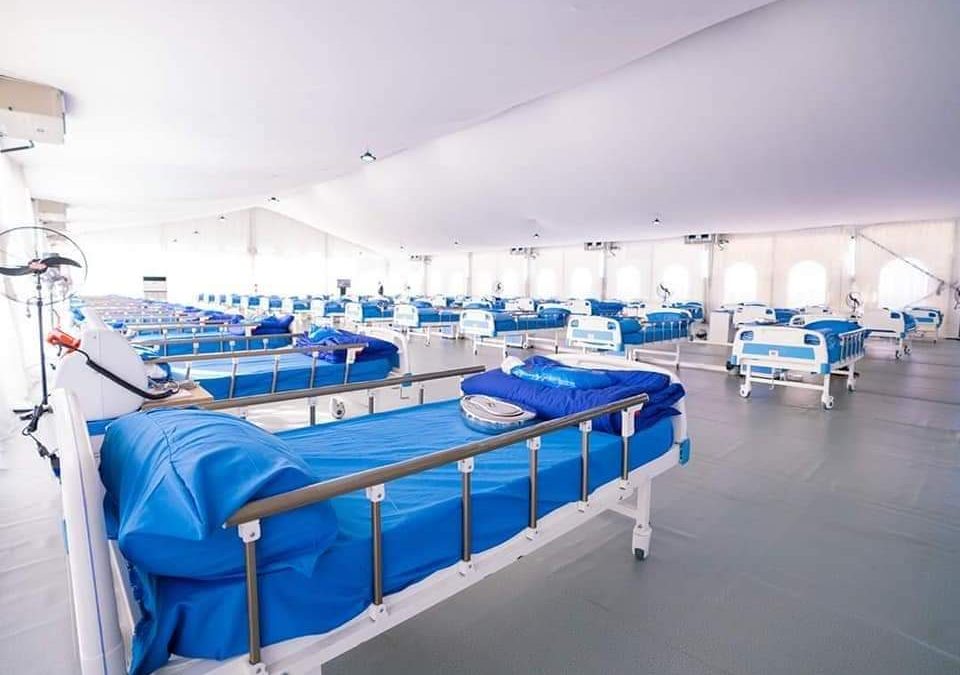-MSI Reproductive Choices
Sexual health and wellbeing is fundamental to a person’s health throughout their life. It is not just about the absence of illness, but it’s also about a positive, respectful approach to sexuality and relationships.
Sexual health is fundamental to the overall health and well-being of individuals, couples and families, and to the social and economic development of communities and countries. Sexual health, when viewed affirmatively, requires a positive and respectful approach to sexuality and sexual relationships, as well as the possibility of having pleasurable and safe sexual experiences, free of coercion, discrimination and violence. The ability of men and women to achieve sexual health and well-being depends on their:
- access to comprehensive, good-quality information about sex and sexuality;
- knowledge about the risks they may face and their vulnerability to adverse consequences of unprotected sexual activity;
- ability to access sexual health care;
- living in an environment that affirms and promotes sexual health.
Sexual health-related issues are wide-ranging, and encompass sexual orientation and gender identity, sexual expression, relationships, and pleasure. They also include negative consequences or conditions such as:
- infections with human immunodeficiency virus (HIV), sexually transmitted infections (STIs) and reproductive tract infections (RTIs) and their adverse outcomes (such as cancer and infertility);
- unintended pregnancy and abortion;
- sexual dysfunction;
- sexual violence; and
- harmful practices (such as female genital mutilation, FGM).
Definitions of Sexual Health
The definition of sexual health has progressed since the World Health Organization (WHO) published its original definition in 1975. It is expected that the definition will continue to develop further as the cultural conversation continues to evolve. It is important to remember that any attempts to establish “norms” and an objective definition of sexual health is dangerous in that they could be used to exclude or label people as unhealthy or abnormal.
Sexual health is an important part of physical and mental health. It is a key part of our identity as human beings together with the fundamental human rights to privacy, a family life, and living free from discrimination. Essential elements of good sexual health are equitable relationships and sexual fulfillment with access to information and services to avoid the risk of unintended pregnancy, illness or disease.
What is Sexual and Reproductive Health?
Good sexual and reproductive health is a state of complete physical, mental and social well-being in all matters relating to the reproductive system. It implies that people are able to have a satisfying and safe sex life, the capability to reproduce and the freedom to decide if, when, and how often to do so. To maintain one’s sexual and reproductive health, people need access to accurate information and the safe, effective, affordable and acceptable contraception method of their choice. They must be informed and empowered to protect themselves from sexually transmitted infections. And when they decide to have children, women must have access to skilled health care providers and services that can help them have a fit pregnancy, safe birth and healthy baby. Every individual has the right to make their own choices about their sexual and reproductive health. UNFPA, together with a wide range of partners, works toward the goal of universal access to sexual and reproductive health and rights, including family planning.
Access to Contraception
Access to contraception is a central component of sexual and reproductive healthcare. Contraception gives people autonomy over their reproductive system with the ability to decide if, or when, they would like to become pregnant.
By offering a choice of contraception methods, sexual and reproductive healthcare providers enable people to make informed decisions about their future fertility. By choosing an IUD, for example, a woman can prevent pregnancy for up to 12 years, or, by opting for a barrier method such as the condom, they can prevent pregnancy for a shorter period, as well as protect against sexually transmitted infections.
The ability to choose if or when to become pregnant can have a far-reaching impact on an individual’s ability to make other life decisions. With reproductive choice, people can determine their own futures, whether that’s choosing to stay in education or pursue their career.
But not everyone who wants contraception is able to access it. Currently, across low- and middle-income countries, there are 257 million people with an unmet need for contraception. This lack of access is having a devastating impact on lives and futures. For example, MSI’s analysis found that every year, across sub-Saharan Africa, up to 4 million girls drop out of school or are excluded due to teenage pregnancy. Universal access to contraception can, therefore, not only advance people’s sexual and reproductive health, but can also help reverse one of the main perpetuators of inequality: girls’ lack of access to education.
Women’s Access to Safe Abortion
Women will always need access to abortion. No form of contraception is 100% effective and across the world, almost 1 in 3 pregnancies end in abortion, with millions of people deciding to have an abortion every year.
Laws that govern abortion access vary from country to country. This means that women’s access to safe abortion depends largely on where they live. For example, in the Philippines and El Salvador, abortion is prohibited in all circumstances, whereas in Sweden, abortion care is available on request up until 18 weeks’ gestation.
Making abortion more legally restricted does not stop people from requiring abortions. Data from the Guttmacher Institute shows that abortion rates are similar in countries where abortion is broadly legally accessible and those where it is restricted. What varies is that in countries where abortion is more restricted, the number of women dying due to unsafe abortion rises. This shows that rather than reducing the number of abortions taking place, restricting women’s access to abortion results in more women seeking unsafe – in some cases fatal – services instead.
Unsafe abortion puts the health and lives of women at risk. Currently, almost half of all abortions that take place worldwide are unsafe: an estimated 35 million each year. As a result, seven million women face health complications, and over 22,800 lose their lives.
But it’s not just legal restrictions that force women to turn to unsafe abortion. Harmful cultural norms, a lack of access to accurate information, and inaccessible or poorly funded reproductive healthcare services contribute to women seeking an abortion that is less safe. If we are to end unsafe abortion for good, we must ensure that women’s access to safe abortion is not only supported by policy, but that it is de-stigmatised, adequately funded, and easy to access.
Societal Stigma
Societal stigma around sexual and reproductive health and rights is one of the ways a person’s access can be restricted.
Harmful cultural norms such as beliefs that only some people should access sexual and reproductive health services, perpetuate stigma, driving misinformation and in some cases, fear, shame, and intimidation among people seeking healthcare. Stigma can also impact the willingness of providers to offer services, and can prevent groups, such as adolescents, from being able to access information on the options available to them.
MSI’s research in the UK revealed that just one in three women in the UK would tell their family if they were considering abortion, proving the wall of silence that exists around abortion care even in a country where abortion is legally unrestricted. Our My Body, My Voice report also revealed that nearly one in four of MSI’s abortion clients (23.4%) across Latin America, Africa, and Asia reported experiencing some form of stigma from their partner, their community and in some cases, sexual and reproductive healthcare providers.
Societal stigma can have devastating consequences. When people are forced to prioritise secrecy, they’re more likely to seek unsafe sexual and reproductive health services that put their lives and futures at risk.
By being open about sexual and reproductive health, we can help dismantle the societal stigma around contraception and abortion care. Sharing your story can be an effective way of making people feel less alone in their choices and can help increase awareness around the necessity of sexual and reproductive healthcare, including contraception and abortion care.
Related posts
Global | Didi Angaye Earns A Distinction Award, Another Feather To The Cap
On a bright sunny day, in the month of July, 2024, the prestigious Staffordshire University located in the West Midlands of England organised its Award giving and Graduation ceremony to honour graduates of various educational programmes and courses which it offers. Didi Timipah Angaye,…
Olu Of Warri Bags Award In UK, Wife Advocates Return To Cultural Values
The Olu of Warri, Ogiame Atuwatse III, has received the Leadership and Community Development award at the 14th African Achievers Awards (AAA), which took place at the Parliament House, United Kingdom. The award was presented by a member of the House of Lords, London, Rt…
Brit Awards | Asake, Burna Boy And Other ‘New Cats’ Get Nominations
Nigerian singers Burna Boy, Asake, and Rema have been nominated for the 2024 Brit Awards. The nomination list for the annual music awards show was released on Wednesday 25, January 2024. Burna Boy and Asake made the ‘Best International Artiste’ category, while ‘Calm…
Brit Awards 2024 | The Full List Of Artist(e)s
This year’s Brits nominees have been revealed ahead of the ceremony in London in March. Dua Lipa is the first star confirmed to perform at the event – but how many awards is she up for? Musicians including Raye, Central Cee, J Hus and Blur are also…
Top 10 Cryptocurrencies To Invest in January 2024
-Michael Adams From Bitcoin and Ethereum to Dogecoin and Tether, there are thousands of different cryptocurrencies, making it overwhelming when you’re first getting started in the world of crypto. To help you get your bearings, these are the top 10 cryptocurrencies based on their market…
The Risk And Reward Of ChatGPT In Cybersecurity
Juan is an experienced CTO with a demonstrated history of working in the computer and network security industry. He is an information technology professional skilled in SAP and Oracle applications, computer forensics, vulnerabilities research, IPS/IDS and information security. Unless you’ve been on a retreat in…
Explained – History Of Money From Fiat To Crypto
What is money? Money as a concept has been a cornerstone of human civilization and economic development. To start with the latter, money is a method of storing value and worth, and it also functions as a medium of exchange that allows individuals to exchange…
Studies Show That Nigerian Crypto Foreign Investment Is At A Record Low
Foreign direct investment in Nigeria fell by 33% last year due to a severe shortage of dollars, which discouraged crypto companies from expanding into the country. The largest economy in Africa has a foreign investment problem despite exponential growth in crypto adoption. The National Bureau…












